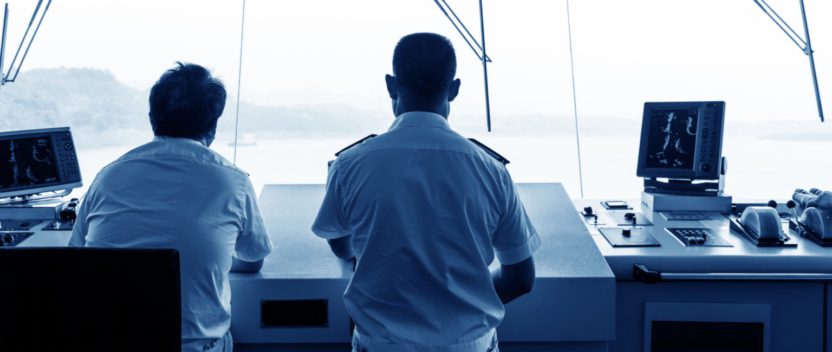Come the revolution?
The arrival of a small containership at the Port of Antwerp would not normally be a focus of much attention; the port sees such ships come and go every day. But the arrival at the end of March of the 2,478 teu containership Azargoun at the Antwerp Gateway terminal was rather more significant than usual.
The ship, belonging to Islamic Republic of Iran Shipping Lines (IRISL) was the first to call in Europe in six years, following the lifting of international sanctions against Iran. Until 2010, Antwerp had been among the main European destinations for Iran cargoes.
Though some US sanctions against Iran are still in place, the lifting of international nuclear-related sanctions in January this year has the potential to transform the country’s political and economic climate.
Beset by poor markets and always on the lookout for an opportunity, shipowners and maritime service providers are eyeing the country’s potential, keen to re-establish trade ties and business opportunities with this once-pariah state.
One of the first back into the country was Italian class society RINA, which together with the Asian Classification Society classed two IRISL general cargo ships which resumed trading to European ports.
The dual classification arrangement with Tehran-based ACS is the result of a partnership signed by RINA in January. With the other major classification societies also eyeing the Iranian market, RINA called the deal a strategic move to expand its local reach and classification expertise.
RINA is a diversified group providing inspection and certification across its marine, energy, infrastructure and transport and business assurance business units.
The energy market is an obvious target in a country with abundant oil and gas reserves but which has been unable to earn international revenues over the past six years. Its infrastructure and industry is in need of modernisation and its shipping fleet in urgent need of renewal.
South Korean shipbuilding giant Daewoo Shipbuilding & Marine Engineering (DSME) has already signed a memorandum of understanding with the Tehran government to run the Iran Shipbuilding & Offshore Industries Complex.
Under the agreement, the South Korean shipbuilder will bring manufacturing technology to the shipyard in order to modernise facilities at the site, which is located 37 km west of Bandar Abbas.
Iran’s Industrial Development and Renovation Organization of Iran, which is responsible for the nation’s strategic industries such as automobiles and shipbuilding, is also seeking to form a partnership with the Korean shipbuilder, to create a shipbuilding hub in the Middle East.
Earlier this year DSME was rumoured to be close to sealing an order from Iran for five jack-up rigs from the National Iranian Oil company, potentially worth $1.14bn, a contract which whose negotiations are still ongoing.
While international companies seek to take advantage of business opportunities in Iran, other voices are urging that caution should be the main plank of a post-sanctions strategy. Among these is legal giant Ince and Co which warned in a circular to Asian clients that risks remain when dealing with Iranian companies.
Anyone considering conducting business with Iran should remain vigilant and continue to carry out appropriate due diligence on proposed counterparties Ince advised, seeking legal advice to ensure that they comply with any remaining restrictions and that they are suitably protected in their contracts.
Ince also said companies should check insurance and finance arrangements to ensure that there are no restrictions that preclude conducting business in or with Iran or Iranian entities. Iran scores highly on the Corruption Perception Index which makes it important to ensure that suitable anti-bribery and corruption policies are in place to mitigate risks.
In a recent White Paper, The Economist Intelligence Unit also advised a long view when weighing the risks of dealing with a political and administrative system that has undergone some significant changes, but still has powerful currents of continuity.
As the EIU points out, Iran’s economy is unusual among the region’s oil exporters; it boasts the largest natural gas reserves in the world and the fourth-biggest oil reserves, and yet it has a diversified economy including a significant manufacturing sector and a large, youthful and well-educated population.
However, it cautions that the business climate is less welcoming. ‘Vested interests still permeate almost every aspect of the economy and typically operate outside the parameters of international commercial law’ it warns. In particular, those businesses connected to the Islamic Revolutionary Guards Corps ‘will jealously guard the gains they accrued during a decade of sanctions’.
But the EIU is pragmatic, the blame for Iran’s delicate operating environment should not be pointed solely at Iran. ‘An array of residual US sanctions can snare the more unwitting investor, and Iran’s economic momentum is still too dependent on the vagaries of the global oil market,’ it notes.
For shipowners, the major issue preventing them resuming trade with Iran has been insurance, in light of these lingering US sanctions. Even as EU, UN and secondary US sanctions were lifted, the opening up of Iranian trade for shipowners has been delayed by the primary US sanctions which prohibit US banks, financial institutions and P&I Clubs from resuming Iranian business.
For P&I Clubs, the primary sanctions meant that no US-domiciled reinsurers could contribute to their share of claims, leaving members exposed to the risk of a reinsurance shortfall in the event of liabilities involving Iranian interests. This meant that early movers were subject to very high costs as well as high risks.
However the International Group of P&I Clubs has spent the last few months working with US authorities to put in place a temporary mechanism for vessel insurance that can circumvent the limitations of the remaining US sanctions. As a result, P&I Clubs can now provide full cover to members in the short term for vessels involved in Iran trade or that call at Iranian ports.
However, some larger shipowners are still wary of resuming trade with Iran, because the rules are actually more confused now than when full sanctions were in place.
Writing in the IG’s annual review, Mike Salthouse, chair of the its sanctions working group and a deputy director of the North P&I Club, said the dialogue continues with both the State Department and the US Treasury Office of Foreign Assets Control in an attempt to address the reinsurance default risk posed by US primary sanctions.
While welcoming the freeing up of trade with Iran, Salthouse said the continuing application of US primary sanctions undermines the effectiveness of the Group’s reinsurance programmes.
“It also consequently impacts upon the integrity of the insurance cover provided by clubs to their shipowner members.” The agreement reached with US authorities is only conceived of as a stop-gap measure and a permanent solution is still needed, he argues.
As a result, a significant number of shipowners and major shipping groups remain concerned about potential limitations on the available reinsurance cover, and other aspects of the agreement. Until these issues have been satisfactorily and permanently resolved, he warned, few owners would be prepared to resume large scale trade with Iran.


